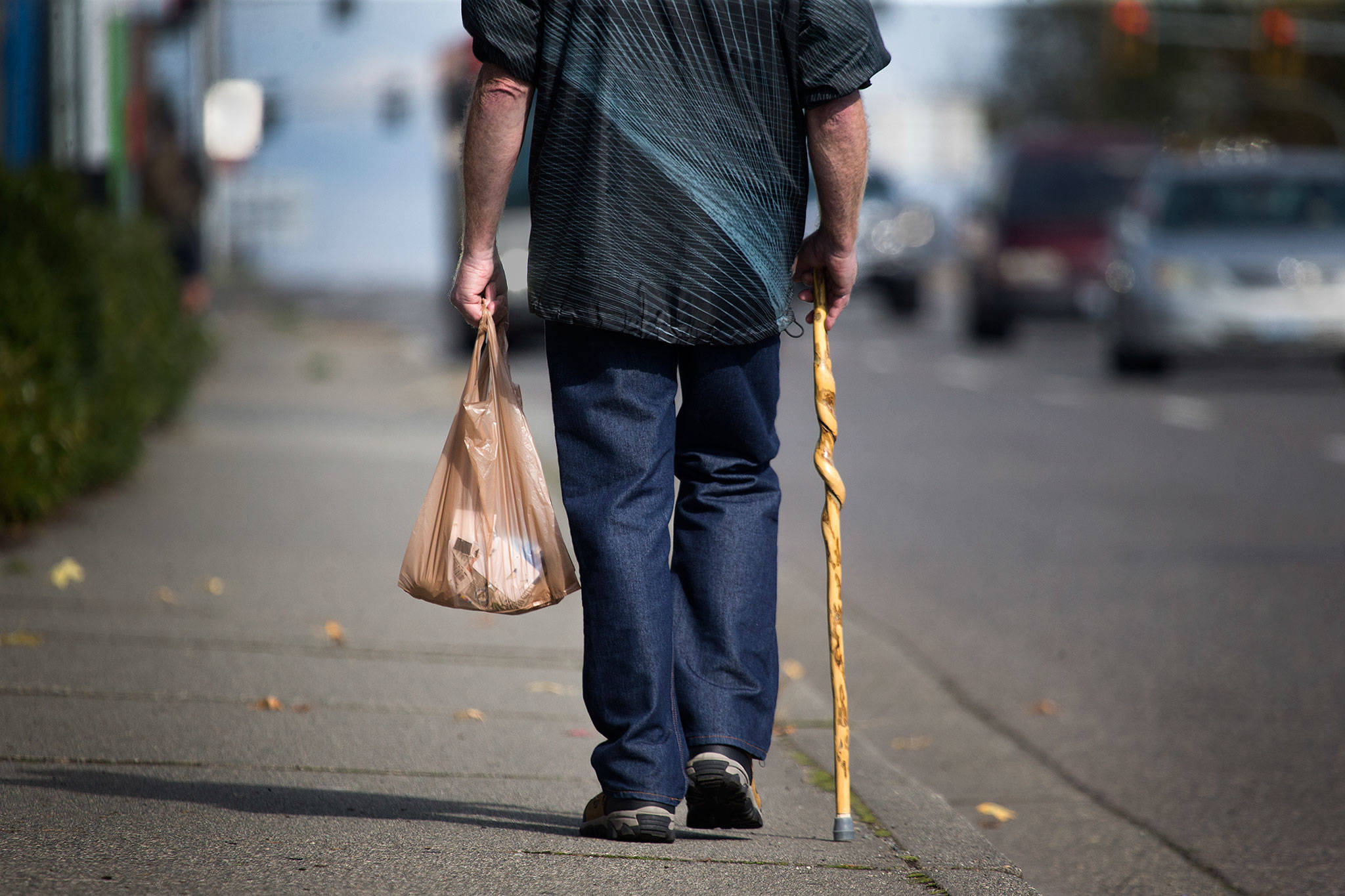By The Herald Editorial Board
While bans of plastic shopping bags at grocery stores already are in effect in about 20 cities in the state — including in Edmonds, Mukilteo and Tulalip’s Quil Ceda Village — and are being considered by Everett and Snohomish, a proposal to ban single-use plastic bags statewide would make Washington only the second state in the U.S. to make that move.
Considering the experience of the state’s cities where such bans already are in effect — as well as that of California and elsewhere — state lawmakers should now bring a statewide ban and how it would work up for discussion.
Rep. Strom Peterson, D-Edmonds, and Sen. Kevin Ranker, D-Orcas Island, announced their intention to introduce legislation when the session begins in January. Peterson was on the Edmonds City Council when it passed its ban in 2009.
The bills would bar stores from distributing the plastic bags and charge a 10-cent fee for the use of paper bags provided by stores, encouraging shoppers to bring their own reusable bags.
The intention of the ban is the reduction of a portion of the plastic that finds its way into the state’s waterways, Puget Sound, Salish Sea and ocean, and as litter, in landfills and in recycling.
A 2014 report by Scientific American found that the full range of plastic pollution — because it isn’t biodegradable but breaks down into tiny microplastics that contain and absorb toxic chemicals — are ingested by birds and marine life. A European Commission study cited by the magazine, found that 90 percent of North Sea birds had plastics in their stomachs. Another report blamed the ingestion of plastics for tens of thousands of deaths of birds and marine wildlife worldwide.
It’s worth asking, however, whether such a ban would make a difference and reduce the amount of plastic pollution.
The Washington Policy Center has argued against the bans considered and passed by cities and is gearing up to fight the statewide proposal. Todd Myers, director for WPC’s Center for the Environment, in earlier online commentaries, has criticized the bans as addressing only a tiny portion of the plastic pollution and questions whether replacing plastic bags with reusable cotton bags is actually less harmful for the environment because of the use of fertilizers and pesticides necessary to produce cotton, which then find their way downstream.
Myers told The Seattle Times that to make a difference environmentally, a shopper would have to use a cotton bag every week for six years.
But then, that’s kind of the idea behind the reusable bags. And cotton isn’t the only option, as most shoppers already have noticed among the range of inexpensive bags available near the counters of most grocery stores.
An examination of California’s 2016 ban of plastic bags by San Francisco public broadcaster KQED a year after the ban began, found that it would take about 130 uses of one cotton bag — less than half of Myers’ estimate of more than 300 times — to equal one use of a single-use plastic bag. But other reusable bags needed far fewer uses to equal that of plastic bags. Polyester bags needed to be used 42 times to equal a plastic bag. Woven polypropylene bags needed to be used only 11 to 13 times to justify the switch from a single-use plastic bag.
Opponents also point to how most of us use the single-use bags to line kitchen trash cans or pick up pet waste. But while that reuse sends the bags to the landfill, a significant number of the bags find their way into recycling. The bags themselves aren’t considered recyclable, and when mixed with recyclable plastics, drive down the market value of those plastics and complicate recycling efforts. The KQED report cited a San Jose recycler who reported that the ban meant fewer of the plastic bags were getting caught in their equipment, which had reduced down-time by up to 50 percent.
Critics also point out that the bags represent just a small portion of the plastic contamination.
It is small in comparison to other plastics, but not insignificant. And a ban on plastic bags also is something that can be done without major costs or inconvenience to shoppers. The Los Angeles Times Editorial Board, reviewing the California ban a year after it took effect, reported that Californians adjusted quickly to the switch to reusable bags.
Single-use plastic bags — to recycle a cliche — are low-hanging fruit. Their elimination will leave far too much that needs to be addressed in the way of single-use plastics — plastic straws, bottles, lids and cups, snack bags and wrappers and other food containers — that all contribute to waste and pollution.
But where else does one start but with the stuff that’s easiest to pick?
Talk to us
> Give us your news tips.
> Send us a letter to the editor.
> More Herald contact information.

























